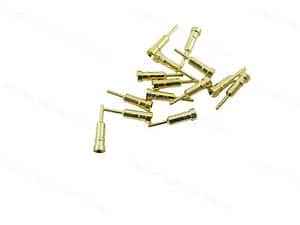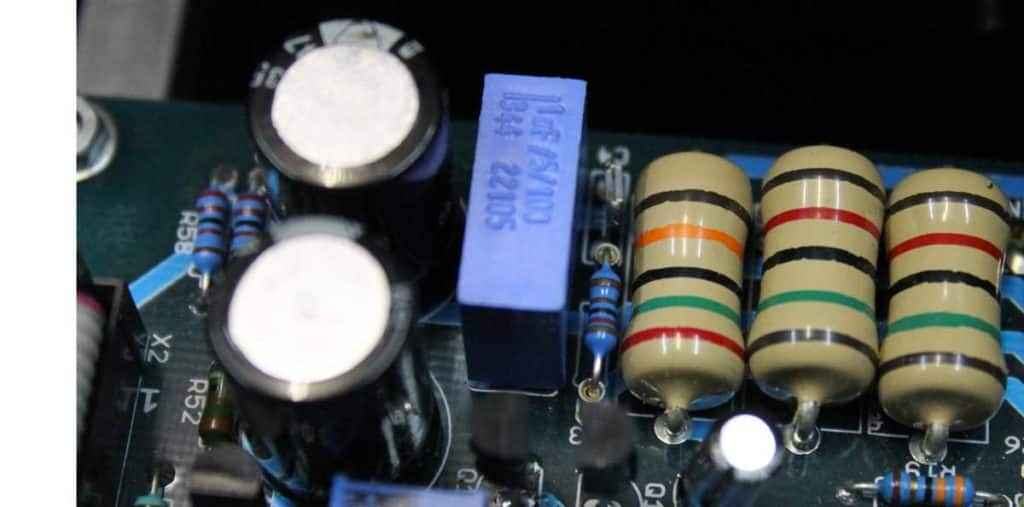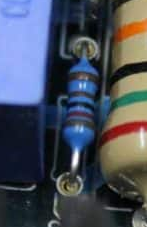I have a factory Aleph 3 that I like very, very much.
I also have diy Aleph 2 monoblocks.
I recently noticed that the sound from the factory Aleph 3 is more relaxed than my diy Aleph 2's.
I am wondering if the differences I hear are due to differences in the design (of the Aleph 3 vs the Aleph 2) or due to the parts used (in the factory 3 vs my diy 2's).
It seems a good idea to first check if the difference is due to the design. Has anyone heard the FACTORY Aleph 3 as well as the FACTORY Aleph 2? Did the 3 sound more relaxed than the 2?
Did anyone who has ever built and modified an Aleph hear a difference with resect to perceived "relaxedness" of the sound when using other brands of circuit capacitors (not PSU capacitors) or 5W resistors? If so, what gave the most "relaxed" sound?
My 2's were built by a friend a long time ago and I do not know how well the mosfets were matched. What does an Aleph sound like if the Mosfets are not matched properly?
Please note I am not interested in ways to make a "better" Aleph 2. I like the sound of the factory Aleph 3 and am not interested in changing the first stage of my 2's using ZVP, Toshiba Jfet or other parts. I simply would like to know how relaxed an Aleph 2 can sound compared to the Aleph 3 that I like very, very much.
Thanks!
I also have diy Aleph 2 monoblocks.
I recently noticed that the sound from the factory Aleph 3 is more relaxed than my diy Aleph 2's.
I am wondering if the differences I hear are due to differences in the design (of the Aleph 3 vs the Aleph 2) or due to the parts used (in the factory 3 vs my diy 2's).
It seems a good idea to first check if the difference is due to the design. Has anyone heard the FACTORY Aleph 3 as well as the FACTORY Aleph 2? Did the 3 sound more relaxed than the 2?
Did anyone who has ever built and modified an Aleph hear a difference with resect to perceived "relaxedness" of the sound when using other brands of circuit capacitors (not PSU capacitors) or 5W resistors? If so, what gave the most "relaxed" sound?
My 2's were built by a friend a long time ago and I do not know how well the mosfets were matched. What does an Aleph sound like if the Mosfets are not matched properly?
Please note I am not interested in ways to make a "better" Aleph 2. I like the sound of the factory Aleph 3 and am not interested in changing the first stage of my 2's using ZVP, Toshiba Jfet or other parts. I simply would like to know how relaxed an Aleph 2 can sound compared to the Aleph 3 that I like very, very much.
Thanks!
Well, if your Aleph 2 is faulty wouldn't you want to fix it?
Or if you could make the Aleph 2 sound more like the Aleph 3 or improve it to sound even better than either of them wouldn't that interest you?
Or if you could make the Aleph 2 sound more like the Aleph 3 or improve it to sound even better than either of them wouldn't that interest you?
Last edited:
Mr Pass has commented over the years about the different alephs, for example:
https://www.diyaudio.com/forums/pass-labs/158580-aleph-power-amp.html#post2046733
https://www.diyaudio.com/forums/pass-labs/9123-differences-alephs.html#post103188
Hope that helps.
https://www.diyaudio.com/forums/pass-labs/158580-aleph-power-amp.html#post2046733
https://www.diyaudio.com/forums/pass-labs/9123-differences-alephs.html#post103188
Hope that helps.
Thanks Dennis.
I checked the links but most differences that were mentioned deal with bass performance and the sweetness of the sound (Aleph 3 being the sweetest). Based on what I read I did not expect the Aleph 3 to sound more relaxed than the Aleph 2, but that is what my ears tell me (as well of a few other ears I borrowed).
I hope someone can chime in who has heard the factory versions of both amps. I don't want to randomly replace parts in otherwise perfect diy Aleph 2 monoblocks, hoping to find the magic bullet. Perhaps it was the expensive chassis after all haha 🙂
I checked the links but most differences that were mentioned deal with bass performance and the sweetness of the sound (Aleph 3 being the sweetest). Based on what I read I did not expect the Aleph 3 to sound more relaxed than the Aleph 2, but that is what my ears tell me (as well of a few other ears I borrowed).
I hope someone can chime in who has heard the factory versions of both amps. I don't want to randomly replace parts in otherwise perfect diy Aleph 2 monoblocks, hoping to find the magic bullet. Perhaps it was the expensive chassis after all haha 🙂
Honestly that is it, you heard from the designer himself (Nelson Pass) what the differences were, which was pretty much what I also described.
If the Aleph 2 doesn't sound as appealing to you as the Aleph 3, then either you much prefer the 2nd Harmonic content of the Aleph 3, or your Aleph 2 was not built as well as it could have been, in which case you have absolutely nothing to lose to improve it, since you already have an operating Aleph 3 which you prefer anyway.
If you don't feel comfortable making changes to an amp because of inexperience then that is understandable. I just imagined, this being a diy forum, it might be something that would interest you.
If the Aleph 2 doesn't sound as appealing to you as the Aleph 3, then either you much prefer the 2nd Harmonic content of the Aleph 3, or your Aleph 2 was not built as well as it could have been, in which case you have absolutely nothing to lose to improve it, since you already have an operating Aleph 3 which you prefer anyway.
If you don't feel comfortable making changes to an amp because of inexperience then that is understandable. I just imagined, this being a diy forum, it might be something that would interest you.
Last edited:
altering AC gain is simple and effective, and that'll cover most of difference , when spaekers driven are easy enough on smaller amp ( of two of interest)
it's a matter of installing sockets for one sole resistor legs, and soldering it in ( or not ) when finished
graphic illustration of resistor fiddling, easy enough for final user ( different amp, but principle is the same) :


easypeasy
it's a matter of installing sockets for one sole resistor legs, and soldering it in ( or not ) when finished
graphic illustration of resistor fiddling, easy enough for final user ( different amp, but principle is the same) :


easypeasy
I have some old BrianGT boards, I may as well build it up and see how good I can make it then compare it to Aleph J.
Which sockets are you using?
Do you have a part number or brand you prefer?
just butcher any decent IC socket
which means - do not cut, push them out one by one
easier than wait to buy them separate
I'm not totally sure what you mean by "relaxed". But I own Aleph 2s now, and I have owned an Aleph 3 and Aleph 5 in the past (and am about to own a pair of Aleph 1.2s).Has anyone heard the FACTORY Aleph 3 as well as the FACTORY Aleph 2? Did the 3 sound more relaxed than the 2?
I think Nelson's descriptions in the posts cited in comment 3 are pretty much in line with my experience. There's an incredible sweetness to the top end of the Aleph 3 that none of the others seem to match. As the power level increases, you lose a bit of that, but it's compensated by more richness in the midrange and much better (more tuneful, not just more powerful) bass.
But how that balance plays out for you may well depend upon your speakers. Given really sensitive full-range 8 ohm speakers, the Aleph 3 might be the best choice. But many speaker-room-listener combos will want more power...
PS As far as I can tell, the Aleph 4 is unobtainium. Can someone from Pass tell us how many of these were made? I have never seen one, only heard rumors of their existence from my dealer back in the day....
Am I blind? Where is the socket?
Zen Mod has installed sockets on his pcb to change resistors in and out.
It's on the resistor.
Attachments
Last edited:
The socket is underneath the board? I understand the idea of having a socket, to change resistors, and would like to do it, too!
I'm not totally sure what you mean by "relaxed". But I own Aleph 2s now, and I have owned an Aleph 3 and Aleph 5 in the past (and am about to own a pair of Aleph 1.2s).
I don't really know how to describe it.In an old Stereophile review, Thomas J Norton describes the Rowland Consummate (the preamp I use) and compares it to a Krell KBL and a Levinson 26S.
I hope the above helps 🙂I found the Krell to sound somewhat "darker" than the Rowland, with a rather sweeter sound and with somewhat larger images. More "bloom" perhaps, but accompanied by a bit less precise focus. The Rowland was a bit more laid-back, the Krell more forward. The No.26S, in comparison, seemed more laid-back than the Rowland (we're talking fine gradations here, not row A-Z). The Levinson was the leaner of the two in sound, with voices a bit less full. The Levinson sounded "faster," the Rowland more relaxed and warm.
My Rowland Consummate feeding F4 monoblocks sounds very "relaxed" on my 3.7's.
Changing to the Aleph 2 monoblocks I no longer have the relaxed sound of the F4. I of course also notice other differences, but that is not what I am focussing on here.
The F4 is a completely different amp than the Aleph 2, so a comparison of the Aleph 2 with another Aleph family member is more appropriate.
Previously I have used my factory Aleph 3 for a bi-amped set of magnepan 3A's, driving mid/hi only (it has plenty of power for this). The sound was also very "relaxed". When I swapped the factory Aleph 3 for diy Aleph 2's (with the Aleph 2's also driving mid/hi only), I lost the "relaxed" sound.
I am wondering if the difference between my diy Aleph 2's and factory Aleph 3 are due to design or parts used. I understand you have owned both and it is not something you have particularly noticed (believe me, you would notice the difference I hear).
Based on your observations (only you have heard both factory versions) I conclude that the difference is due to implementation (parts used in my diy version vs factory) rather than design.
Now, to find the offending culprit(s)!
Could it be due to the circuit capacitors used? Or the large resistors (the rest are the same Dale RNxx used by Pass)? Or perhaps a not properly matched set of Mosfets?
I think Nelson's descriptions in the posts cited in comment 3 are pretty much in line with my experience. There's an incredible sweetness to the top end of the Aleph 3 that none of the others seem to match. As the power level increases, you lose a bit of that, but it's compensated by more richness in the midrange and much better (more tuneful, not just more powerful) bass.
But how that balance plays out for you may well depend upon your speakers. Given really sensitive full-range 8 ohm speakers, the Aleph 3 might be the best choice. But many speaker-room-listener combos will want more power...
I agree. If you have one set you have to find the right match. I have too much gear (speakers and amps) and can play around with them 🙂But how that balance plays out for you may well depend upon your speakers. Given really sensitive full-range 8 ohm speakers, the Aleph 3 might be the best choice. But many speaker-room-listener combos will want more power...
I have both the factory Aleph 3 and the diy Aleph 2's, and the Aleph 3 for mid/hi on magnepan 3A's is the best I have ever heard on those speakers. Because it only has to drive mid/hi it has plenty of power, even for large rooms.
I also have some other amps, including a factory F5 and various diy amps (F4, J2, Aleph J) and parts for some more (M2 and others). Plenty to play around with.
I was just intrigued by the differences I heard in the factory Aleph 3 compared to the diy Aleph 2 and was wondering what could cause it.
- Home
- Amplifiers
- Pass Labs
- Sound of Aleph 2 vs Aleph 3
